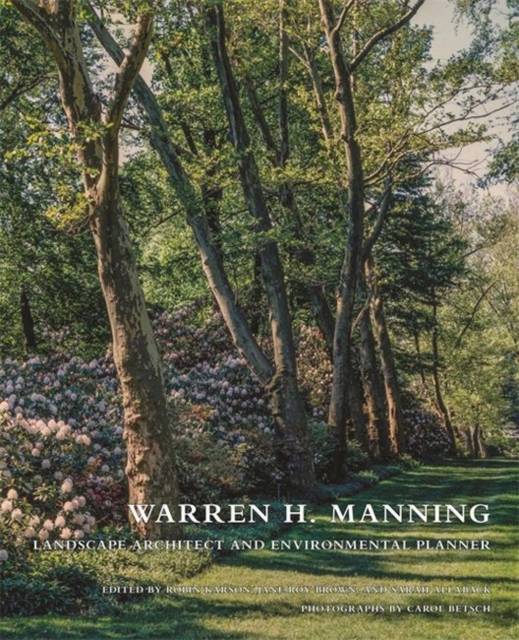
- Afhalen na 1 uur in een winkel met voorraad
- Gratis thuislevering in België vanaf € 30
- Ruim aanbod met 7 miljoen producten
- Afhalen na 1 uur in een winkel met voorraad
- Gratis thuislevering in België vanaf € 30
- Ruim aanbod met 7 miljoen producten
Warren H. Manning
Landscape Architect and Environmental Planner
Omschrijving
Warren H. Manning's (1860-1938) national practice comprised more than sixteen hundred landscape design and planning projects throughout North America, from small home grounds to estates, cemeteries, college campuses, parks and park systems, and new industrial towns. Manning approached his design and planning projects from an environmental perspective, conceptualizing projects as components of larger regional (in some cases, national) systems, a method that contrasted sharply with those of his stylistically oriented colleagues. In this regard, as in many others, Manning had been influenced by his years with the Olmsted firm, where the foundations of his resource-based approach to design were forged. Manning's overlay map methods, later adopted by the renowned landscape architect Ian McHarg, providedthe basis for computer mapping software in widespread use today.
One of the eleven founders of the American Society of Landscape Architects, Manning also ran one of the nation's largest offices, where he trained several influential designers, including Fletcher Steele, A. D. Taylor, Charles Gillette, and Dan Kiley. After Manning's death, his reputation slipped into obscurity. Contributors to the Warren H. Manning Research Project have worked more than a decade to assess current conditions of his built projects and to compile a richly illustrated compendium of site essays that illuminate the range, scope, and significance of Manning's notable career with specially commissioned photographs by Carol Betsch.Specificaties
Betrokkenen
- Uitgeverij:
Inhoud
- Aantal bladzijden:
- 416
- Taal:
- Engels
- Reeks:
- Reeksnummer:
- nr. 1
Eigenschappen
- Productcode (EAN):
- 9780820350660
- Verschijningsdatum:
- 1/04/2017
- Uitvoering:
- Hardcover
- Formaat:
- Genaaid
- Afmetingen:
- 236 mm x 279 mm
- Gewicht:
- 2045 g

Alleen bij Standaard Boekhandel
Beoordelingen
We publiceren alleen reviews die voldoen aan de voorwaarden voor reviews. Bekijk onze voorwaarden voor reviews.










